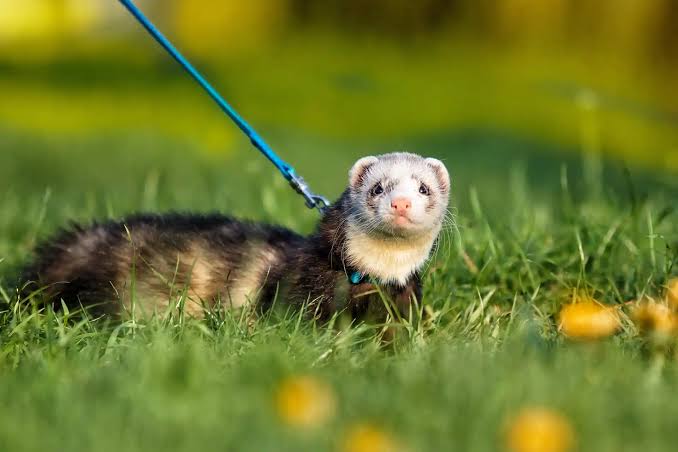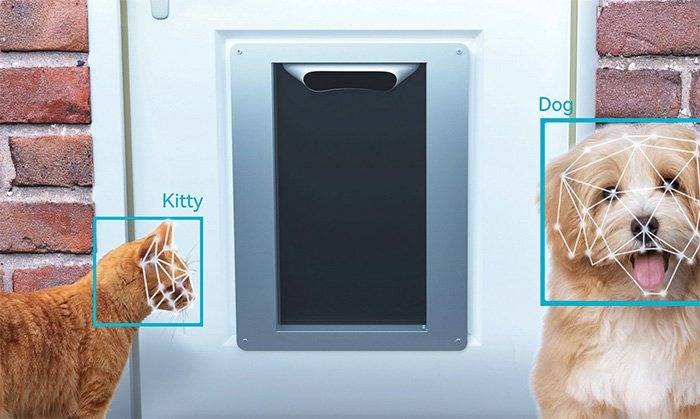
"Ferret Fun: Understanding the Mischievous Nature of Your Playful Pet" – Covering ferret energy levels, diet, social needs, and playtime activities.
Ferrets are intelligent, playful, and curious pets with boundless energy. They require a specialized diet, social interaction, and plenty of engaging activities to stay happy and healthy. This guide explores their energy levels, dietary needs, social habits, and the best ways to keep them entertained, ensuring a joyful life for both you and your furry friend.
🐶 Pet Star
14 min read · 30, Jan 2025

Understanding Ferret Energy Levels
Ferrets are naturally high-energy creatures, but their activity comes in bursts. Unlike dogs or cats, ferrets follow a cycle of intense play followed by deep sleep. They can sleep up to 18 hours a day but, when awake, they are incredibly active and love to explore.
Active Bursts and Sleep Patterns
- Ferrets wake up full of energy and can run, jump, and play enthusiastically for about 3-4 hours before dozing off again.
- They enjoy short, frequent naps and prefer cozy, enclosed sleeping spaces, like hammocks or burrows.
- You should provide them with a proper sleep environment, away from direct sunlight and noise, to maintain their well-being.
Dietary Needs of a Ferret
A well-balanced diet is the key to keeping your ferret healthy and energetic. Ferrets are obligate carnivores, which means their diet should be rich in animal protein and fat. They cannot process plant-based foods efficiently, so avoid fruits, vegetables, and grains.
Essential Nutrients for a Healthy Ferret
- High-Protein Diet: Ferrets require at least 32-38% protein in their diet. Good sources include high-quality ferret kibble, raw meat, or specially formulated ferret food.
- Healthy Fats: At least 15-20% fat content is necessary for their energy levels. Chicken fat and fish oil are excellent sources.
- Avoid Sugary or Carbohydrate-Rich Foods: Ferrets have a short digestive tract, making it difficult for them to process sugars and fiber. Feeding them the wrong foods can lead to obesity and insulinoma (a common disease in ferrets).
- Hydration: Always provide fresh, clean water, as ferrets are prone to dehydration.
Social Needs: Ferrets Love Company
Ferrets are highly social animals and require companionship, either from their human families or other ferrets. A lonely ferret can become depressed and develop behavioral issues.
How to Ensure Your Ferret Feels Loved
- If possible, consider having more than one ferret, as they thrive in pairs or small groups.
- If you have only one ferret, spend ample time playing, cuddling, and interacting with them daily.
- Introduce them to different people and pets (safely) to keep them well-socialized.
- Ferrets express affection by grooming, nuzzling, or even playfully nipping, so understand their body language to respond accordingly.
Playtime and Enrichment Activities
Oh, dear one, playtime is the heart of a ferret’s happiness! These little adventurers need plenty of stimulation to prevent boredom and destructive behavior. Here’s how you can keep your ferret entertained:
Toys and Games for Ferrets
- Tunnels and Tubes: Ferrets love running through tunnels and hideouts. You can buy special ferret tunnels or make DIY tunnels using PVC pipes or flexible dryer hoses.
- Dig Boxes: Fill a shallow box with rice, shredded paper, or packing peanuts (the safe kind) to let them dig and burrow.
- Chase and Fetch Games: Some ferrets enjoy chasing small balls, squeaky toys, or feather wands.
- Interactive Puzzle Toys: Treat-dispensing toys encourage their problem-solving skills.
- Soft Plush Toys: Some ferrets enjoy dragging around soft toys like a prized possession.
- Safe Exploration Areas: Create a safe, enclosed play zone where they can roam, climb, and explore freely.
DIY Playtime Ideas
- Create a small obstacle course with boxes, ramps, and tunnels.
- Hide treats around their play area and let them sniff and search for them.
- Use old clothes or blankets to make hiding spots and burrowing zones.
Ferret-Proofing Your Home
Ferrets are tiny escape artists and love squeezing into small spaces, chewing on things, and knocking over objects. Before letting them roam freely, ensure your home is safe for them.
Steps to Ferret-Proof Your Space
- Seal off tiny gaps under furniture, cabinets, or appliances.
- Keep toxic plants, electrical wires, and household chemicals out of reach.
- Avoid items like rubber bands, foam, or small objects that they might swallow.
- Supervise playtime to prevent them from getting stuck in dangerous places.
Conclusion
My dear, owning a ferret is like having a tiny, playful trickster running around your home! They require attention, proper care, and lots of love. Understanding their high energy levels, dietary needs, social requirements, and playtime activities will ensure that your mischievous little friend stays happy and healthy. Treat them well, and they will reward you with boundless affection and entertainment.
Q&A Section
Q1: How long do ferrets live?
Ans: Ferrets typically live between 6-10 years with proper care.
Q2: Can ferrets be potty trained?
Ans: Yes! Ferrets can be litter trained, but it requires patience and consistency. Provide a litter box in their cage and play area.
Q3: Do ferrets bite?
Ans: Ferrets may nip playfully, but with training and socialization, they can learn gentle behavior.
Q4: How often should I clean my ferret’s cage?
Ans: Spot-clean the cage daily and do a deep cleaning once a week to maintain hygiene.
Q5: Are ferrets good pets for children?
Ans: Ferrets require supervision around young children as they are delicate and can be accidentally harmed or provoked to nip.
Q6: Can I walk my ferret on a leash?
Ans: Yes, ferrets can be trained to walk on a harness and leash, but they prefer short, supervised outdoor explorations.
Q7: Do ferrets get along with other pets?
Ans: They can get along with cats and some dogs, but introductions should be slow and supervised.
Q8: How often should I feed my ferret?
Ans: Ferrets have fast metabolisms and should have access to food at all times or be fed multiple small meals daily.
Similar Articles
Find more relatable content in similar Articles

Sustainable Pet Products: What to Look for in 2025...
As sustainability becomes a ce.. Read More

How Pets Strengthen Family Bonds...
Pets are more than just compan.. Read More

How Climate Change Affects Wild and Domestic Animals...
Climate change is dramatically.. Read More

Smart Homes for Pets: Automated Feeders, Doors, and Mo..
As smart home technology advan.. Read More
Explore Other Categories
© 2024 Copyrights by rPets. All Rights Reserved.